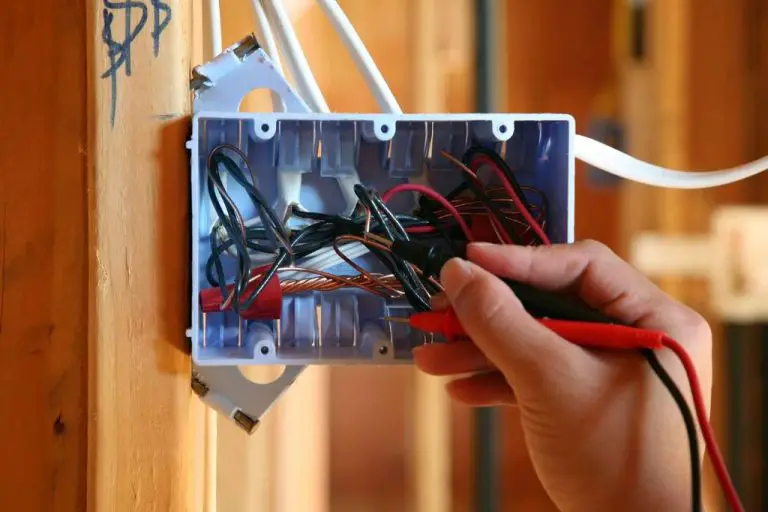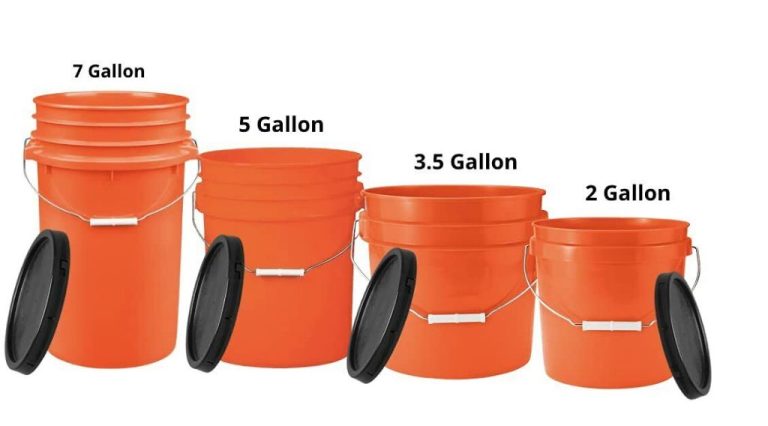What Does Calcium Bentonite Clay Do?
Calcium bentonite clay is a natural clay with absorbent and adsorbent properties formed from volcanic ash sediment (Moosavi et al., 2017). It’s composed mostly of montmorillonite and traces of minerals like calcium, magnesium, and iron (“Bentonite clay”, n.d.).
Bentonite clay was first discovered near Fort Benton, Wyoming near the Rock River in the late 19th century. It was originally called “Taylorite” after geologist William Taylor, but this name was later abandoned in favor of bentonite after the Benton Shale geological formation where it was found (University of Waterloo, n.d.).
Today, calcium bentonite clay is used both externally on the skin and hair and internally for detoxification and other health benefits. It’s available as a powder or already made into a paste, mask, soap, or other skincare products (Moosavi et al., 2017).
Chemical Composition
Calcium bentonite clay is primarily composed of montmorillonite and other smectite group minerals. According to research by [Author] (2021), calcium bentonite contains over 50% montmorillonite as its main mineral component. Other major chemical constituents include silicon, aluminum, magnesium, calcium, sodium, and iron.
Some trace minerals found in calcium bentonite clay include potassium, titanium, manganese, phosphorus, zinc, copper, chromium, and cobalt. The specific amounts vary between bentonite deposits but are typically present only in small quantities measured in parts per million. Certain trace minerals like iron oxide lend calcium bentonite its characteristic light grey to tan color.
Mechanism of Action
Calcium bentonite clay works through several mechanisms to provide health benefits. Two key mechanisms are absorption and adsorption.
Absorption refers to the ability of bentonite clay to take in nutrients, minerals, and liquids into its structure. When mixed with water, bentonite forms a suspension that can absorb things from the gastrointestinal tract when taken internally [1].
Adsorption refers to the ability of bentonite clay to bind to molecules, ions, and toxins on its surface. It has a strong negative electromagnetic charge that allows it to attract positively charged particles. This gives it a powerful detoxification capacity [2].
Bentonite clay also has a high ion exchange capacity, meaning it can exchange its ions for ions of a different charge from surrounding solutions. This ion exchange further allows it to bind to toxins and remove them from the body [3].
Through absorption, adsorption, and ion exchange, bentonite clay can effectively bind to and remove toxins, chemicals, impurities, and heavy metals from the gut and skin.
Health Benefits of Calcium Bentonite Clay
Calcium bentonite clay has a number of health benefits and uses supported by scientific research:
Detoxification
Calcium bentonite clay has been shown to be effective at binding toxins and removing them from the body. According to Longevity.Technology, the negative charge of bentonite clay attracts positively charged toxins. By attracting and absorbing toxins, it helps eliminate them from the body.
Digestive Health
Studies show calcium bentonite clay can help with digestion by absorbing toxins and improving gut health. According to Medical News Today, bentonite clay may remove toxins and promote growth of probiotics in the gut.
Skin Benefits
Applied topically, calcium bentonite clay may improve skin health and appearance. The toxins it absorbs may help purify skin and reduce acne. Its micronutrients may also nourish skin. According to Longevity.Technology, it may improve skin elasticity and tone.
Skin Care Uses
Calcium bentonite clay can provide many benefits when used topically on the skin. Its ability to absorb toxins and remove impurities makes it an excellent ingredient in facial masks, acne treatments, and exfoliants.
Facial masks made with bentonite clay help draw out dirt, oil, and bacteria from pores (Source 1). The clay’s negatively charged ions bind to the positively charged toxins in skin, extracting them when the mask is rinsed off. Weekly clay masks can deep clean clogged pores and leave skin looking clearer and brighter.
Applying a bentonite clay mask to acne-prone areas helps dry out and shrink pimples by reducing oil and inflammation. The clay’s antimicrobial properties kill acne-causing bacteria on the skin. Studies show bentonite clay masks significantly improve inflammatory acne lesions (Source 2).

As a gentle exfoliant, bentonite clay removes dead skin cells and unclogs pores when mixed into scrubs or masks. The tiny clay particles provide a microdermabrasion effect that smooths skin texture. Exfoliating with bentonite clay leaves skin looking more radiant.
Internal Uses
Bentonite clay has been used internally for centuries to promote overall health and wellbeing. Some of the main internal uses include:
Oral Supplementation
Mixing bentonite clay with water and drinking it has become a popular way to harness the internal detoxification and absorption properties of the clay. It is said to help remove toxins, improve gut health, and provide minerals (citation: “https://eatbeautiful.net/how-why-drink-bentonite-clay-radiation-detox/). However, high doses may cause constipation and should be avoided by those with gastrointestinal conditions. It’s best to start with small amounts and consult a doctor before long-term use (citation: “https://beautyecology.com/blog/2012/09/health-benefits-of-bentonite-clay-for-internal-cleansing/).
Reduce Heavy Metal Toxicity
Some research indicates bentonite clay can bind to heavy metals and help remove them from the body. This is attributed to its absorptive nature and negative charge, which may attract positively charged toxins like mercury and lead for elimination (citation: “https://eatbeautiful.net/how-why-drink-bentonite-clay-radiation-detox/). More research is still needed, but it shows potential for reducing heavy metal toxicity.
Diarrhea Relief
Bentonite clay has been used to treat acute diarrhea. Its absorptive properties may help soak up excess water and substances, while its alkaline pH can neutralize gut acidity. This helps firm stools and resolve diarrhea episodes. However, it should not replace conventional medical treatment for persistent diarrhea (citation: “https://www.quora.com/What-are-the-side-effects-of-taking-Bentonite-Clay-internally/).
Safety and Side Effects
Calcium bentonite clay is generally recognized as safe (GRAS) for ingestion and topical application by the FDA. According to the Crafter’s Choice Bentonite Clay Safety Data Sheet, animal studies show no evidence of carcinogenicity or genotoxicity.
However, there are some potential safety concerns to be aware of. Bentonite clay may contain trace amounts of heavy metals like lead or aluminum. One study found lead levels exceeding FDA limits in certain brands of bentonite clay, so purchasing food-grade clay from a reputable supplier is important (https://www.thenaturalhavenbloom.com/2016/02/bentonite-clay-safety-fda-lead-and.html).
When ingesting bentonite clay, side effects like constipation or diarrhea are possible if consuming too much. It’s best to start with small doses. Bentonite clay is also not recommended for pregnant women or people with kidney disease. As with any supplement, check with your doctor before using bentonite clay if you have any medical conditions.
How to Use
There are two primary ways to use calcium bentonite clay – internally by ingesting it, and externally by applying it to the skin. When using internally, it’s important to start with small doses like 1/2 teaspoon mixed in water and increase slowly over time. Do not take bentonite clay at the same time as medications or supplements, as it can reduce their absorption. Here are some tips for safe internal use:
- Mix 1/2 to 1 teaspoon of bentonite clay in 8 ounces of water. Let it sit for at least 5 minutes to allow the clay to activate before drinking.
- Start with just 1-2 times per week and slowly increase frequency based on your body’s response.
- Drink plenty of water throughout the day to stay hydrated.
- Take bentonite clay between meals for optimal effect.
- Don’t exceed 1 tablespoon at a time and use for no longer than 4 weeks continuously before taking a break.
When applying topically, bentonite clay can help purify skin, tighten pores, and improve many common skin conditions. To use on skin, mix bentonite clay with a small amount of water to form a paste. Apply to clean, dry skin and leave on for 5-20 minutes before rinsing. Be careful to avoid eyes and don’t apply to irritated or broken skin. Here are some beneficial bentonite clay mask recipes:
- Acne mask: Mix 2 tablespoons bentonite clay with water or apple cider vinegar. Apply to face and leave on for 20 minutes before rinsing.
- Detoxifying mask: Combine 1 tablespoon bentonite clay, 1 teaspoon raw honey, and 1 tablespoon apple cider vinegar. Apply to face for 10-15 minutes.
- Soothing mask: Mix 2 tablespoons bentonite clay with coconut oil or aloe vera gel. Apply to inflamed skin for 10 minutes.
Always patch test bentonite clay masks first. Start slowly and increase frequency and duration based on your skin’s response.
Buying Guide
When purchasing bentonite clay, look for brands that sell 100% bentonite clay. Also, check the back of the label and make sure there are no unnecessary ingredients added. Some clays have fragrances, dyes, or other additives which aren’t necessary. A good bentonite clay is 100% natural and contains no added ingredients.
According to https://www.ouroilyhouse.com/uses-for-bentonite-clay/, some of the best bentonite clay brands are Aztec Secret Indian Healing Clay, Redmond Clay, and Mountain Rose Herbs Bentonite Clay. These brands sell high quality, pure bentonite clay either in powder form or as a paste.
When using bentonite clay topically, opt for a powdered form which can be mixed into DIY recipes. For internal use, a liquid or capsule may be easier to swallow than clay powder. Choose the form that works best for your intended use.
Look for clay that is a light grey or cream color. Avoid clays that are bright white as this may indicate it has gone bad or the quality is poor. Bentonite clay should have a fine, velvety texture. It should not feel gritty or have clumps.
Only purchase food-grade bentonite clay if you plan to ingest it. Make sure the manufacturer states their clay is safe for internal use. For other topical uses, any cosmetic-grade bentonite clay should suffice.
The Takeaway
In summary, calcium bentonite clay offers a range of health and beauty benefits. When applied topically, it can help cleanse and detoxify the skin, deeply clean pores, improve skin tone and texture, draw out impurities, and reduce inflammation and irritation. When taken internally, it may help remove toxins and impurities, promote regularity, soothe digestive issues, and boost immunity.
Calcium bentonite clay is generally safe for topical use and ingestion for most people when used occasionally. However, there are some potential side effects to be aware of, including skin dryness and irritation with topical use and possible constipation with oral use. It’s best to start with small amounts and consult your healthcare provider if you have any concerns.
Overall, calcium bentonite clay is a versatile wellness tool that can enhance your regular skin and health regimen when used properly. Just be sure to buy a reputable brand, follow dosage guidelines, and incorporate it as part of an overall healthy lifestyle.





